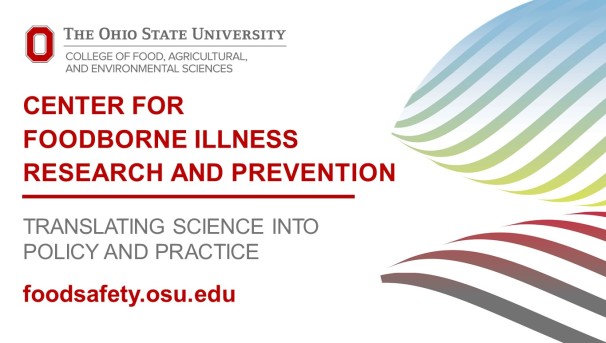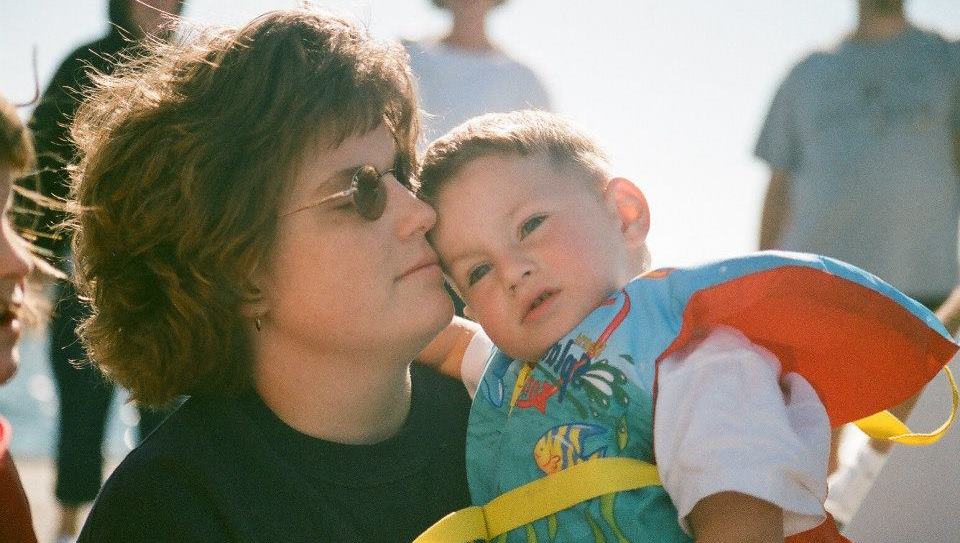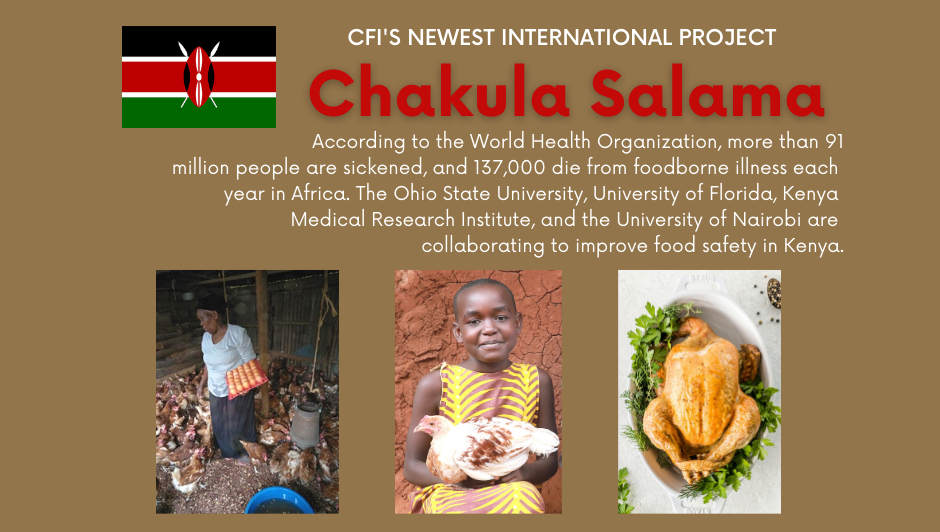Helping Moms in Guatemala
Happy Holidays! For me, December is a time for reflection - 2020 was a difficult year but there were some wonderful moments too. One that particularly stands out is the trip I took with five graduate students to Guatemala to kick-off a project assessing the link between mycotoxin exposure and low birth weight - reflections from three of these students are provided below. The trip was planned and executed by one of my students, Ariel Garsow - who also managed to collect 273 reusable diapers for the moms in the study. Transporting them wasn't easy - as you can see from the blue bags in the pics below. Last year's fundraiser helped make this amazing trip possible!
My name is Ariel Garsow. I am a 2nd year PhD student in the Food Science and Technology Department at The Ohio State University. My research focuses on exploring maize handling practices that lead to mycotoxin (toxins produced from fungi) exposure from consumption of tortillas in Guatemala. CFI has helped me share the global aspects of food safety through experiential learning opportunities with other students. Last spring, CFI helped provide financial support for four additional students from the Food Science and Public Health departments to join Barb and myself in a trip to Guatemala to learn more about this research and how food safety is related to One Health (how health of humans, animals and the environment are connected). A photo from our visit to a hospital in Guatemala is shown below. My current research in epidemiology and data-analytics inspires me to improve safety and security by building cross-cultural collaborations which empower vulnerable populations around the world to obtain safe, nutritious, and culturally acceptable food.
As a 2nd year Food Science and Technology PhD student, I have been afforded several amazing opportunities due to my involvement with CFI. My name is Drew Barkley and my research focuses on using electronic medical record data to estimate the burden of foodborne disease. This research aims to estimate risk of long-term health outcomes from foodborne illness such as reactive arthritis, irritable bowel syndrome, and other chronic diseases. Through CFI, I have been able to access health data from OSU as well as Nationwide Children’s Hospital. I have also been able to see research turn into policy and advocacy by attending FDA meetings and responding to requests for comments in the federal register. Being able to advocate for better food safety at the federal level is unique to being a graduate student with CFI and has been extremely valuable in my professional development. Lastly, I was also fortunate enough to go on a research trip to Guatemala last spring to assist a fellow grad student in her dissertation research on mycotoxin exposure. I am thankful for the memories, connections, and professional development the trip gave me, thanks to CFI.
My name is Devon Mendez and I am 2nd year Master of Veterinary Public Health- Epidemiology Student. I have been with CFI since Fall 2019 and I initially joined to complete my practicum but I continued with the group, hoping to obtain more in-depth research skills. For my practicum, my main task was to conduct a literature review on pre- and post-maize handling practices and how these practices may affect mycotoxin growth, which significantly contribute to negative health outcomes, especially in rural and poor communities in Guatemala. This literature review was part of a larger project being carried out by Ariel Garsow. As part of this research, I was fortunate enough to travel to Guatemala to experience firsthand different aspects of the countries agricultural center as well as see what maize in small Guatemalan markets looks like right before it is sold to the customer. Being a part of CFI has meant so much to me, as it has given be a breadth of skills that I know that I will continue to use as I pursue a career in epidemiology at the state or federal level upon graduation in Spring 2021.
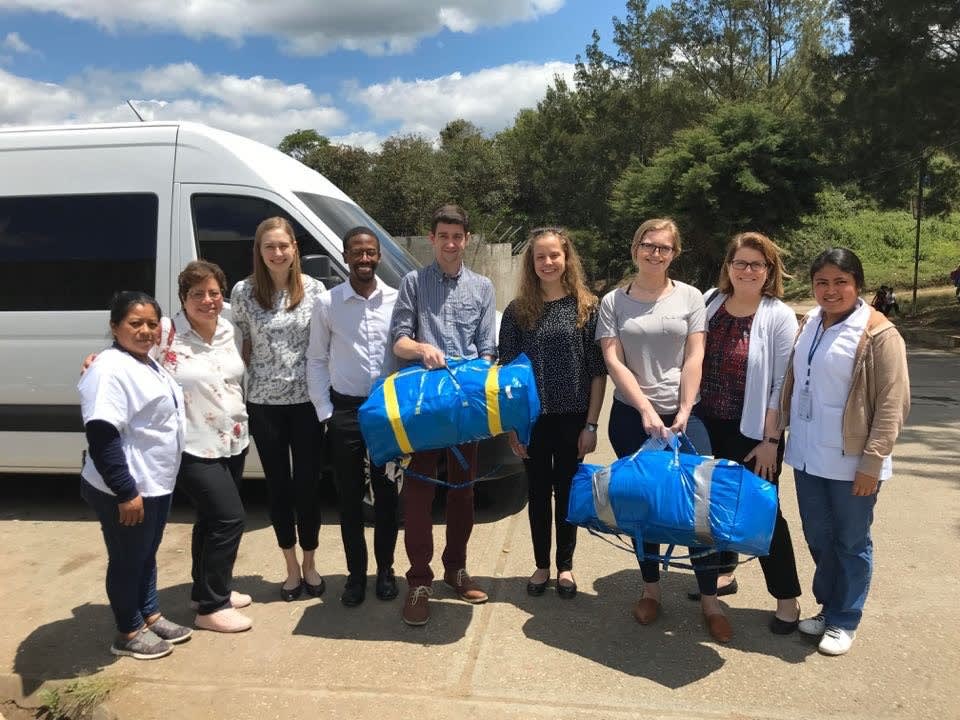

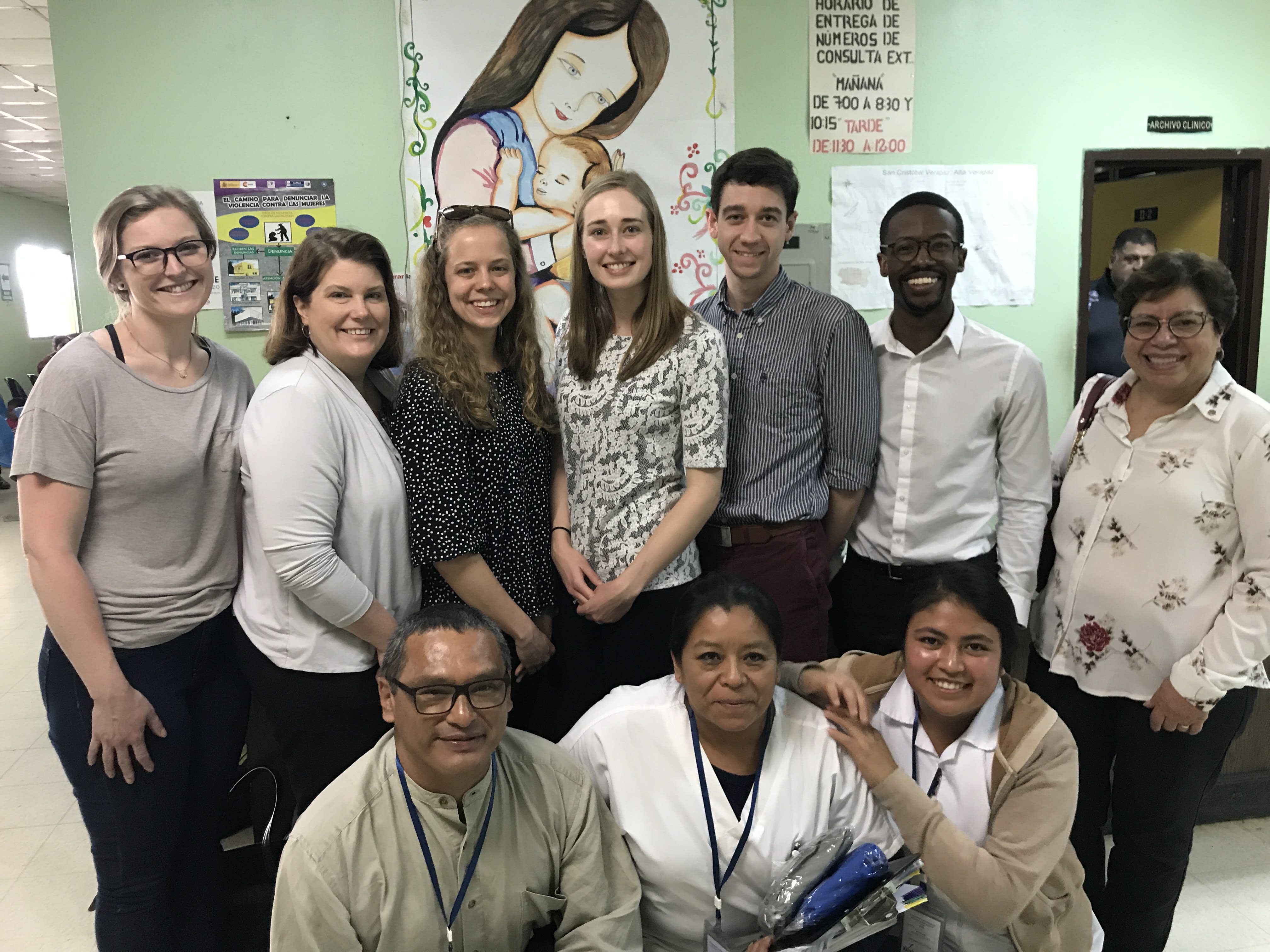
Time to put your turkey in the fridge!
As usual December has been quite hectic with lots of deadlines and holiday planning! One thing that is on my to-do list for today is to put my frozen turkey in the fridge so it is ready to cook later this week. USDA has some great guidelines on defrosting and cooking turkeys that you should check out if you are cooking a turkey for your holiday meal - poultry like chicken and salmonella can be contaminated with bacteria like Salmonella and Campylobacter which can make you quite sick - really the last thing you want during the holidays and especially this year with the pandemic. Here at CFI, we are working hard to reduce the level of contamination in meat and poultry products - we just published a risk assessment on ground turkey. Aaron Beczkiewicz, one of my doctoral students, is focusing on reducing poultry contamination using data analytics for his dissertation so I thought this would be a good time to highlight his work. Aaron, who is pictured second from left below, was recently named one of four FSIS ORISE Graduate Student Food Safety Fellows - quite an accomplishment!
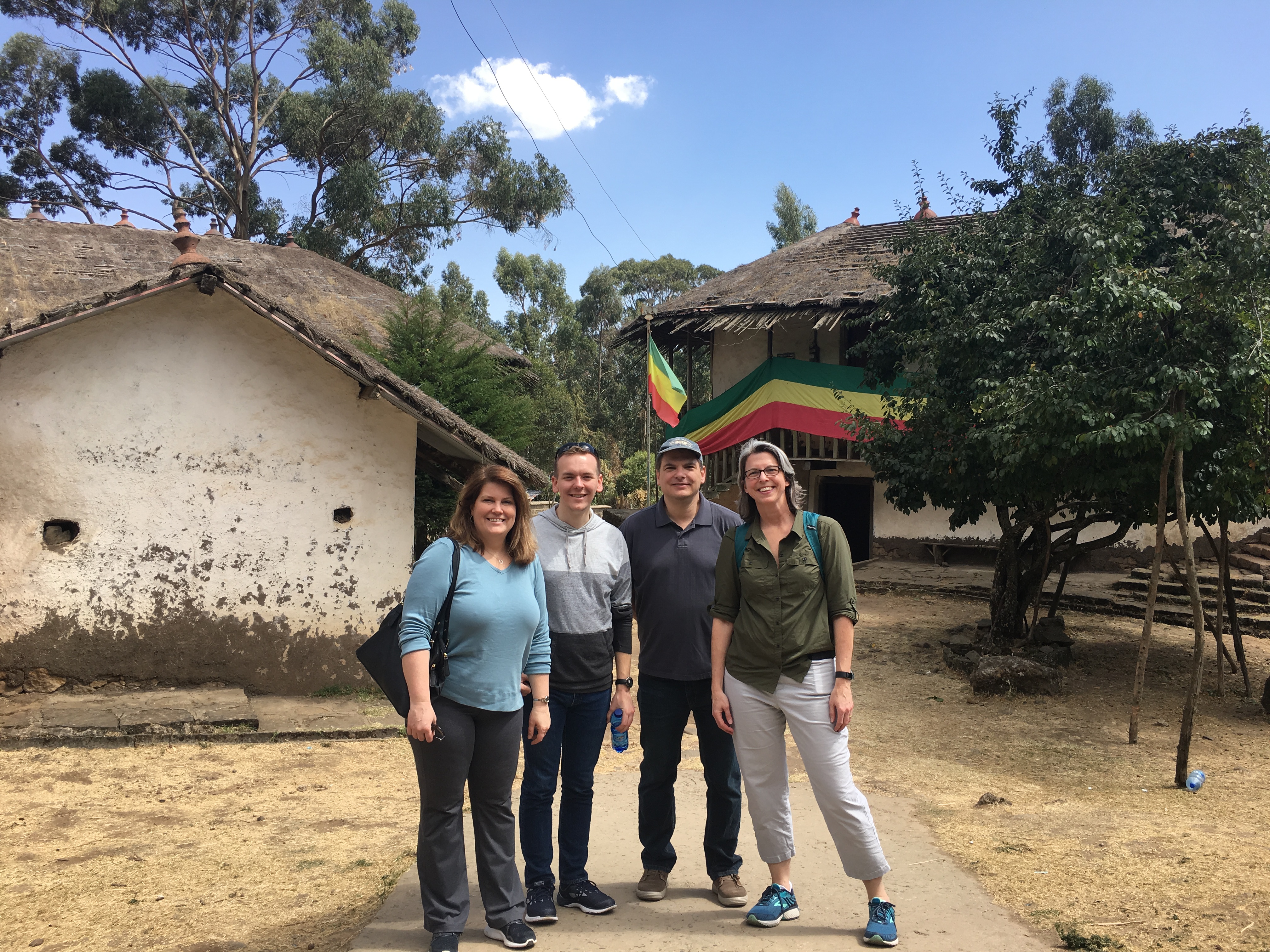
As a third year PhD candidate in my final year of the Food Science and Technology graduate program, I cannot help but keep looking back on the past several years as I begin to plan for life post-grad school. When I was deciding on a graduate program back in 2018, I really wanted to work at the intersection of microbiology and public health. CFI has been an invaluable resource in this regard as my dissertation is using USDA-Food Safety Inspection Service data to explore ways to improve microbiological sampling and regulatory decision making through applied statistical methods and study design. From the institutional knowledge of CFI members on meat and poultry safety to the opportunities for translational experience such as drafting comments for USDA Federal Register postings, CFI has really helped to expand my thinking around food safety to encompass the entire system and all stakeholders involved. While my time at Ohio State will be ending in the coming months, I know my experiences and connections I have made through CFI will continue to shape my future in food safety as I seek out a career at a federal or state agency.
- Aaron Beczkiewicz
Happy Birthday Kevin!
Today should have been Kevin's 22nd birthday. It still takes my breathe away that he is gone. Sadly, too many children around the world are sickened and die each year from foodborne disease. No one should die from the simple act of eating. Children in low- and middle-income countries are particularly vulnerable and, according to the World Health Organization, those living in Africa carry most of the burden of foodborne disease. For the past two years, CFI has been working to improve food safety in Ethiopia and will be initiating a project in Kenya this month. TARTARE - our project in Ethiopia - focuses on estimating the burden of foodborne illness and improving the safety of raw beef and dairy, which are commonly consumed in Ethiopia. Chakula Salama - which means "safe food" in Swahili - will focus on improving the safety of poultry produced by women and youth farmers in peri-urban areas of Kenya. The work is challenging but very rewarding - if we prevent even one child's death, it will be worth it.

Student Highlight - Allison Howell
Our fundraiser is off to a great start - we reached 43% of our goal in just a week! Your donations help CFI engage students in a wide array of projects. Currently, we have 14 students involved in our work - four are pursuing doctorates in Food Science, six are working on their Master of Public Health students, and four are undergraduates working on degrees in Food Science, Physics, Biology and Computer Science. Over the course of our campaign, I'll be highlighting some of their work. First up is Allison Howell who got involved in research as an undergraduate (see picture below) and has already decided to pursue a doctorate:
My name is Allison, and I am a first year graduate student in Food Science and Technology. I joined CFI in May 2020 after graduating from Ohio State with my BS degree in microbiology. So far, I have been supporting CFI’s work on the risk ranking activities as part of the TARTARE and Chakula Salama projects. I have also been working to analyze dietary data from the National Health and Nutrition Examination (NHANES) survey to guide the development of regulations for fresh produce. Joining CFI has given me an opportunity to apply my scientific background and training to a worthy opponent—reducing the burden of foodborne illness. I grew up with one parent running a grocery store and another in charge of a restaurant and catering company, so food has always been an important part of my life. But studying microbiology gave me an understanding and appreciation for all the science and behind the scenes work that goes into making food safe. As part of CFI, I hope to help give other people the opportunity to enjoy and appreciate food safely!

Welcome and Thank You!
Wow - I am always blown away by the support for our work - in less than a day, we have reached 27% of our goal!
As you may be aware, today is Giving Tuesday – “a global generosity movement to unleash the power of people to transform their communities and the world” (www.givingtuesday.org). We launched this campaign to honor Kevin's 22nd birthday and build CFI's endowment - which is now exceeds $169,000 - to provide long-term sustainability for our work. Your donations will support our efforts to transform communities and the world by improving food safety and preventing unnecessary illnesses and deaths from foodborne disease.
Throughout the campaign – which ends December 31 – I will be highlighting the great work we have done over the past year. One great example is our work to understand the long-term health outcomes associated with foodborne disease. We conducted a study of the long-term health effects of HUS through a survey of social media groups and found that more than 70% had at least one long-term sequelae and 97% reported stress symptoms, suggesting that serious foodborne disease may cause post-traumatic stress. The results of the study were recently published and can be accessed here.
Together we can support CFI’s mission is to advance a more scientific, risk-based food safety system that prevents these illnesses and protects public health by translating science into policy and practice – and transform the world!
Best,
Barb
$22
Kevin's Birthday
Kevin Kowalcyk should have celebrated his 22nd birthday this year.
$48
Foodborne Illnesses per year
Each year, there are an estimated 48 million foodborne illnesses per year in the United States.
$77.70
Cost of Foodborne Illness
According to Ohio State researchers, foodborne illness costs an estimated $77.7 billion dollars per year in the United States.
$128
Number of Hospitalizations
Each year, an estimated 128,000 Americans are hospitalized due to foodborne illness.
$420
Number of deaths
The World Health Organization estimates that 420,000 people die each year globally from foodborne disease and 1/3 of these deaths occur in children.
$600
Number of Illnesses
An estimated 600 million people are sickened globally each year by foodborne pathogens. Africa and South-east Asia carry most of the burden.

